Sisters Cheryl Perez, Jaunita Doyle, Dale Bruce and Glenda McCulloch.
PHOTOGRAPHY KAYDE LEHMAN
Sign up to our mailing list for the best stories delivered to your inbox.
The Kalkadoon women capture the colours of Queensland’s Gulf Country as co-owners of Cungelella Art.
WORDS TRACEY PLATT PHOTOGRAPHY KAYDE LEHMAN
However, the sisters who form Cungelella Art at Mount Isa in the heart of Queensland’s Gulf Country could not disagree more. These four Kalkadoon women are at their most creative when together and often paint with more than 20 siblings and offspring crowded around the backyard shed they use as a studio.
Under a simple tin roof, the shed is open on all sides and the concrete floor is an ever-changing kaleidoscope of spattered paint. Two large tables serve as easels, the kettle is always ready for a cuppa and lively sisterly banter punctuated with laughter rings out across the yard.
“We’re used to chaos… we don’t have a schedule, we just go with the flow,” laughs Glenda McCulloch, 31, who started an art business in 2019 while on maternity leave from her job as a storeperson at Mount Isa Mines. “Before I had kids I used to laugh at my paintings and actually threw them in the bin!” she admits. “But I began thinking there is no art in Mount Isa: all the visitors used to go straight through to the Territory to get Aboriginal art and I thought we should have something here. So I set up an Instagram page and it started slowly from there.”
When a local art critic dismissed Glenda’s initial paintings and offered such a low price that she took them home, the business almost folded before it began. Thankfully, encouraged by her family and the Instagram community, Glenda continued to put paint on canvas and today her art is sought after.
One by one, three of her siblings — Cheryl Perez, 30, Jaunita Doyle, 36, and Dale Bruce, 33 (they have two other sisters and three brothers) — have joined the business, with a bit of cajoling. “We’re never far apart, so when Glenda began painting we were all there drinking tea and watching,” Jaunita says. “I kept saying ‘I can’t paint,’ but Glenda would say, ‘Just have a go’. At first we’d help by filling in sections and painting backgrounds and then we started doing our own.”
In fact, their paintings are often a collective effort. “Sometimes all of us have painted one painting, as one of us will start it and someone else will come along and fill in gaps,” Dale explains. “Or if we don’t like how a painting is turning out and are not sure what to do, someone will say, ‘Just do this or add that’ and it will work out.”
Two years on, their Instagram account now has more than 33,000 followers and 90 per cent of their sales occur online. “When COVID came I remember thinking, ‘We won’t bother painting as no one will be worried about artwork, they’ll just be worried about their jobs’,” Glenda says. “But business actually got better because people were at home.”
“People send us photos of our artwork hanging in their house,” Cheryl says. “It’s still weird to think they have something we’ve painted on their walls.”
They have also formed collaborations to produce earrings, yoga mats and footwear, plus this year their work featured in a show by Perth-based fashion label, Deadly Denim, at New York Fashion Week.
But one of their favourite collaborators is their father, Douglas Bruce, who carves boomerangs and didgeridoos for his daughters to embellish. Douglas was an applicant for the Native Title that was finally granted to Kalkadoon people in 2011 and clearly relishes passing down his cultural knowledge. “Dad can’t walk past a berry or a rock without stopping and giving us a lesson about it,” Cheryl laughs.
Douglas and his extended family were also the sisters’ art teachers: “We never really learned much about art at school but our mum [Tanya Bruce] and dad and a lot of our aunties and uncles all painted, so we have to thank our families for passing down the tradition,” Glenda says.
While their ancestors would have used crushed ochre, the sisters use acrylic paint to create contemporary works reflecting the dramatic sunsets, ancient rock formations, undulating valleys and spiny spinifex grasslands that surround their home. “We don’t paint a Dreaming story, we just paint the landscape,” Glenda says. “There’s a lot of white quartz rock out here, so you’ll see that in our backgrounds. When you come out to Mount Isa the colours are ridiculous. The dirt is red and the rockfaces are rustic orange, cream and pink — it’s like nowhere else.”
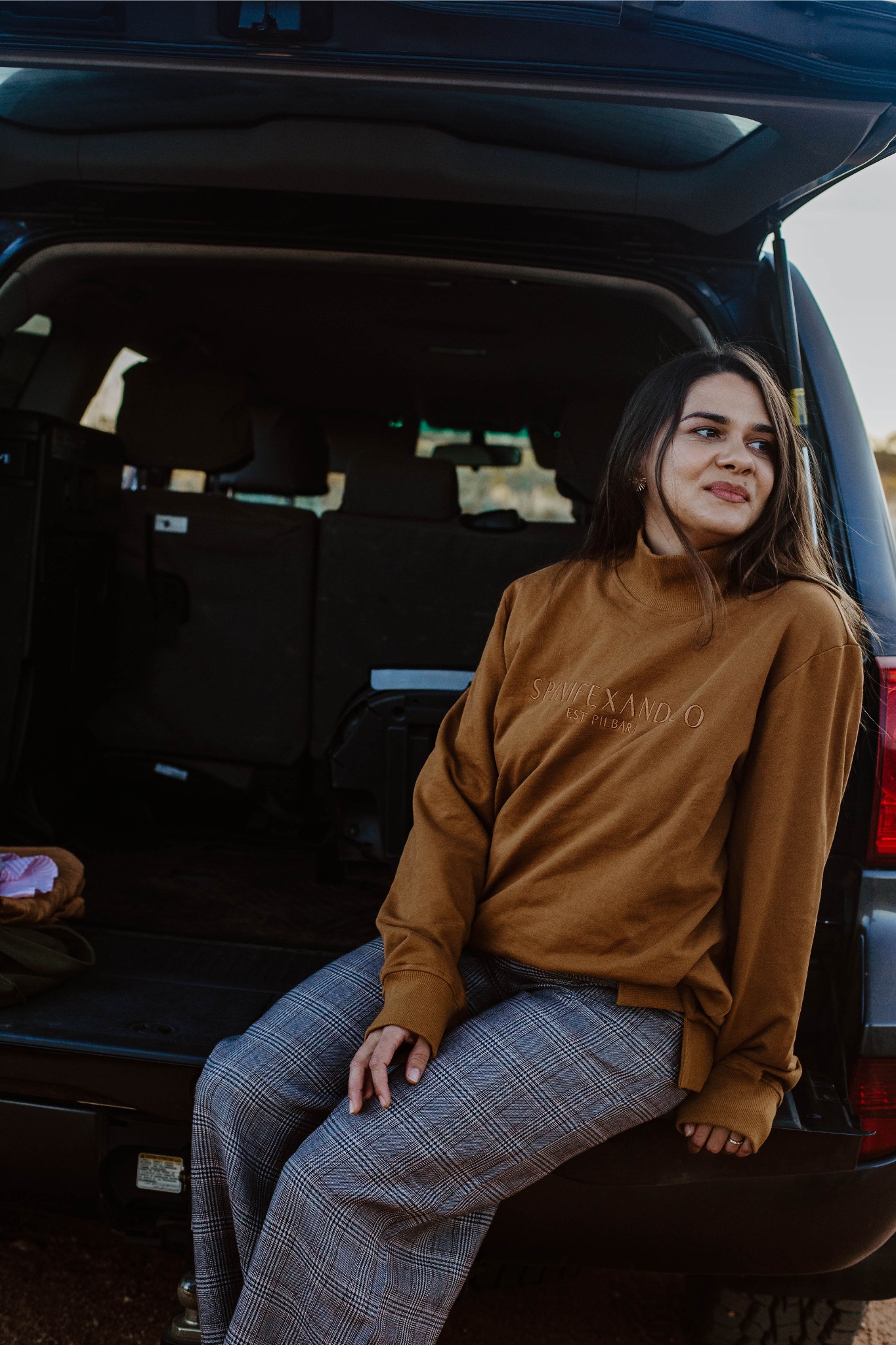
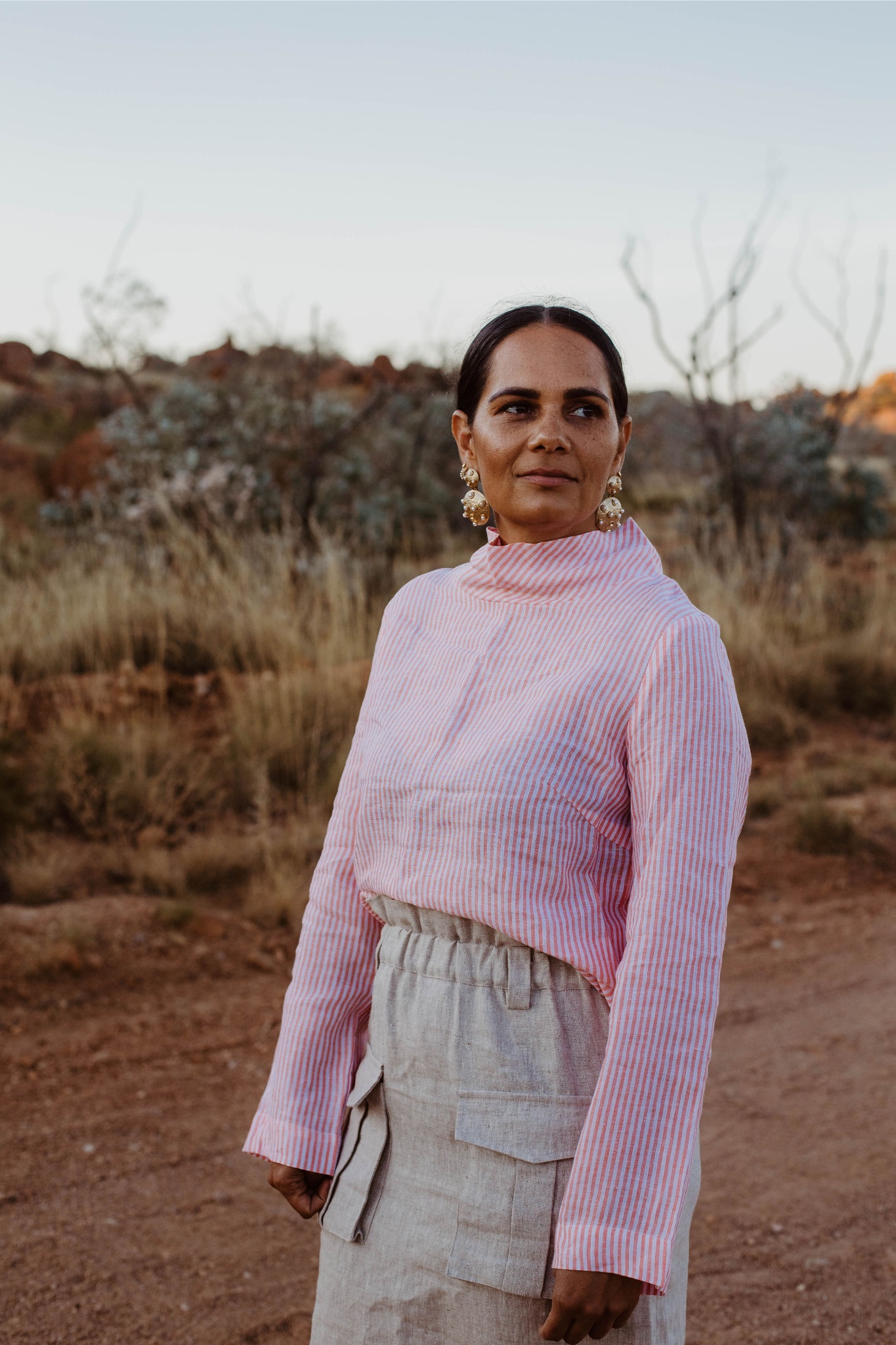
“We never really learned much about art at school but our mum and dad and a lot of our aunties and uncles all painted, so we have to thank our families for passing down the tradition.”
With siblings, the occasional squabble is to be expected; however, Jaunita says they have always enjoyed a strong bond. “Dad was nomadic so we’ve lived in lots of places, like Katherine, Ingham and Malanda. Because we moved around so much we had to become our own best friends. Before we started painting we’d hang out and drink tea but now we’re on the phone all day, every day — if we’re not sitting here looking at each other.”
With a burgeoning art business and 12 children between them (plus one on the way) you might think the sisters have more than enough on their plates. However, later this year they will launch their own fashion label. Like Cungelella Art, named after a great-grandmother who was born on Cungelella Station in Central Queensland, their clothing will carry the traditional name of another great-grandmother who was born on the Sandover River, an ephemeral waterway in the Northern Territory.
“Myrrdah is a label we hope will connect our customers to Kalkadoon country, home of a fierce and very strong tribe,” Glenda says. “We are bringing together authentic Aboriginal designs inspired by the Earth and our surroundings, with natural fibres that come from the land.”
Artistic pursuits aside, what matters most to this creative quartet is giving their kids the same upbringing they enjoyed: “We always had a lot of fun,” Dale says. “Mum and Dad lived on one wage so we weren’t rich, but Mum was always there and Dad would come home from work and kick a soccer ball around with us. Every school holidays Mum and Dad took us to Gregory [a small township three hours north of Mount Isa] to go bush camping and we’d roll out the swags and sleep on the ground. We didn’t have lots of toys or material things, but we always had each other.”
For more information visit the sisters’ website or find them on Instagram.
Subscribe to Graziher and never miss an issue of your favourite magazine! Already a subscriber? You can gift a subscription to someone special in your life.
To hear more extraordinary stories about women living in rural and regional Australia, listen to our podcast Life on the Land on Apple Podcasts, Spotify and all major podcast platforms.
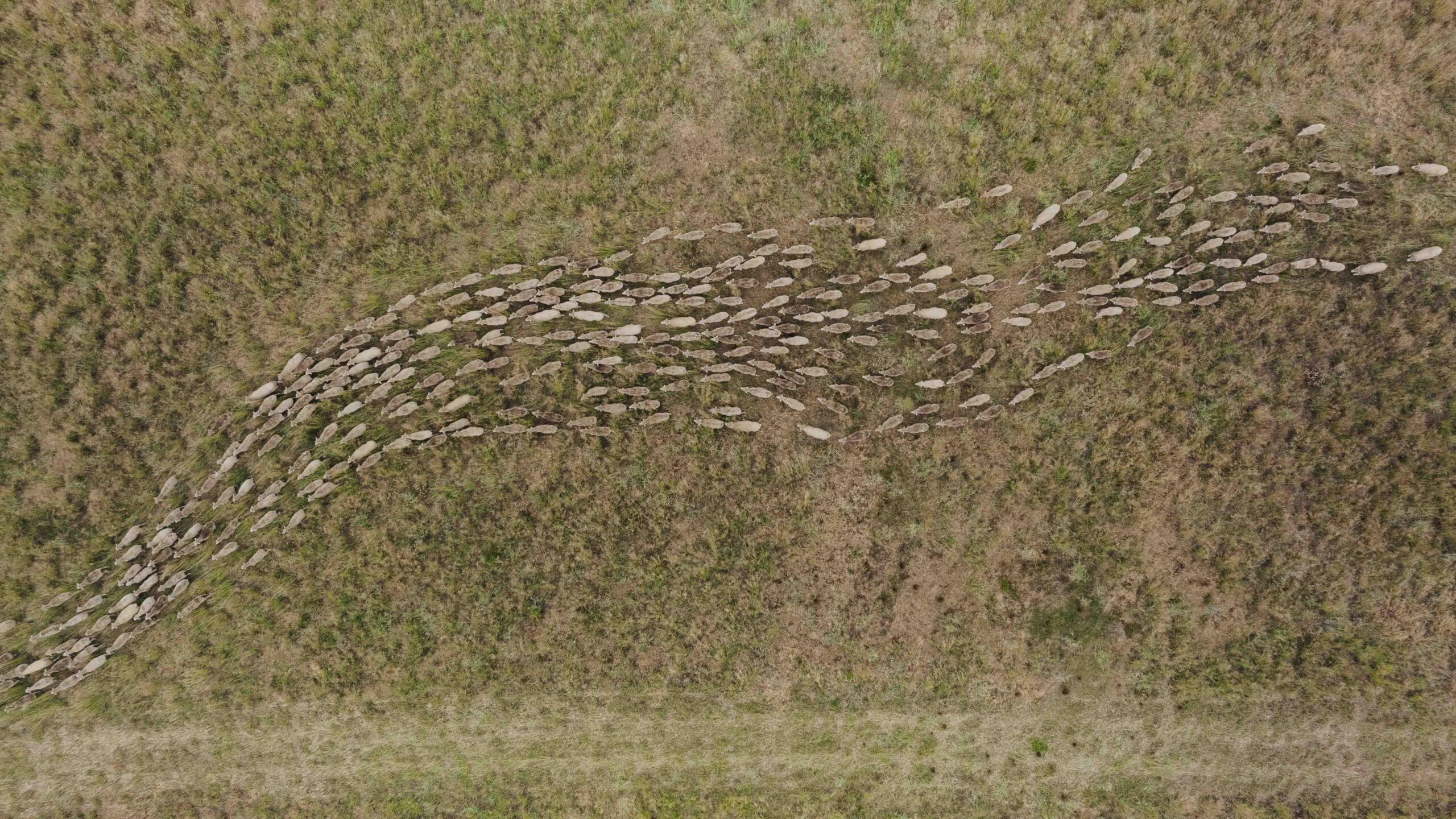
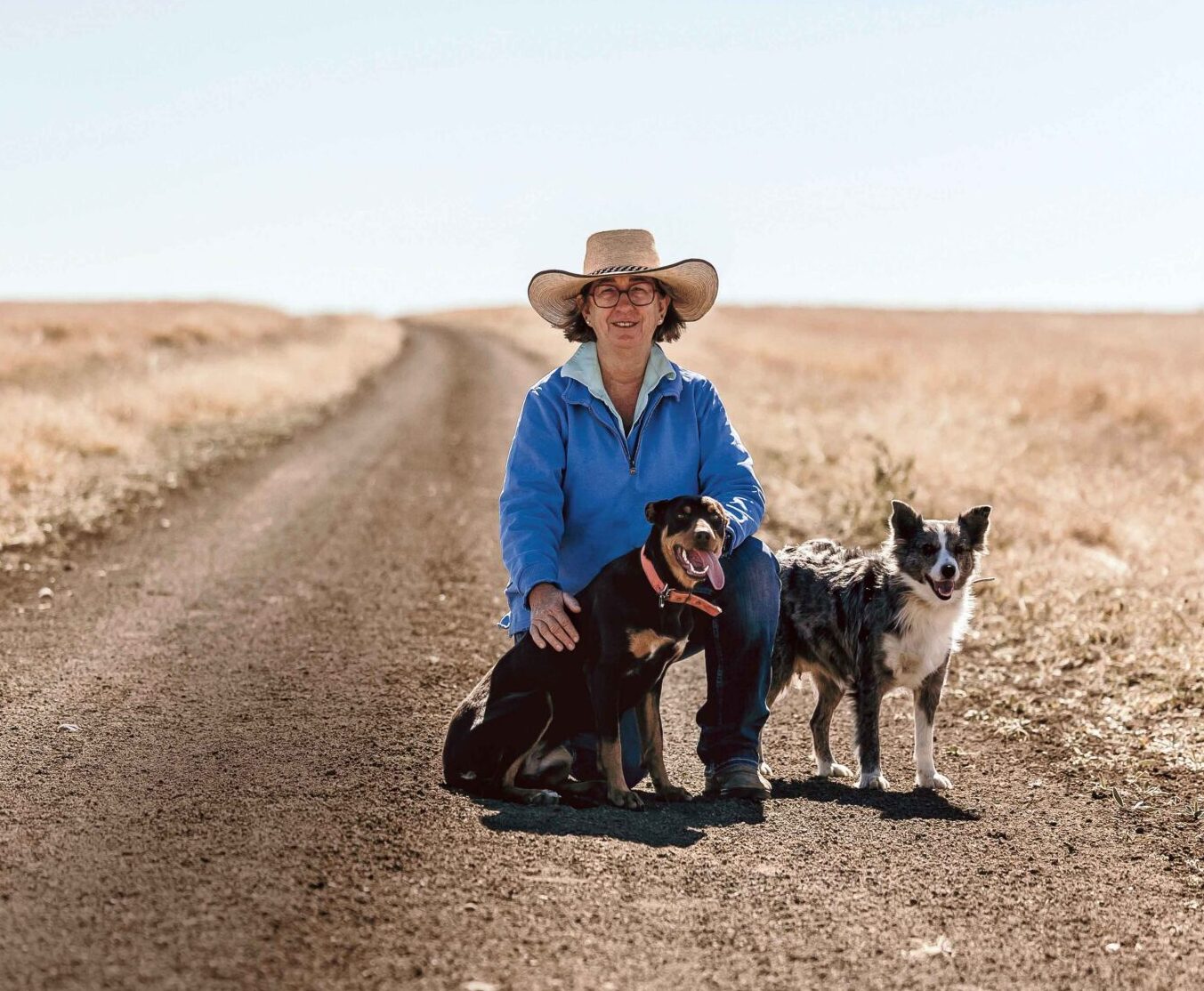
In her youth, she struggled to find her place. Now, Louise Martin knows exactly where she needs to be: in Tambo, Queensland, making sure rural children get the education they deserve.
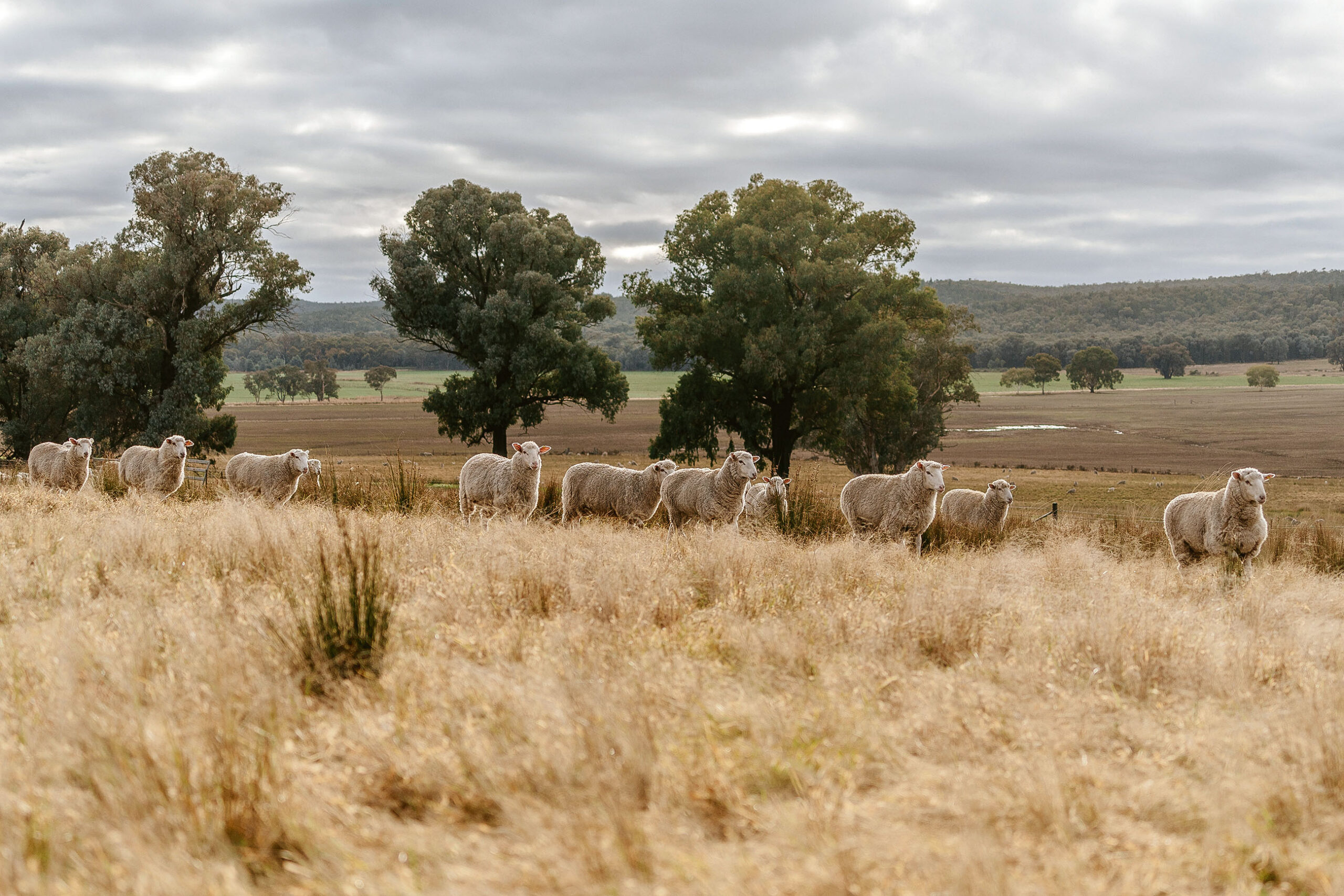
Writer and photographer Alexandra MacAlpine finds ways to hold onto moments of peace amid the busyness of station life.